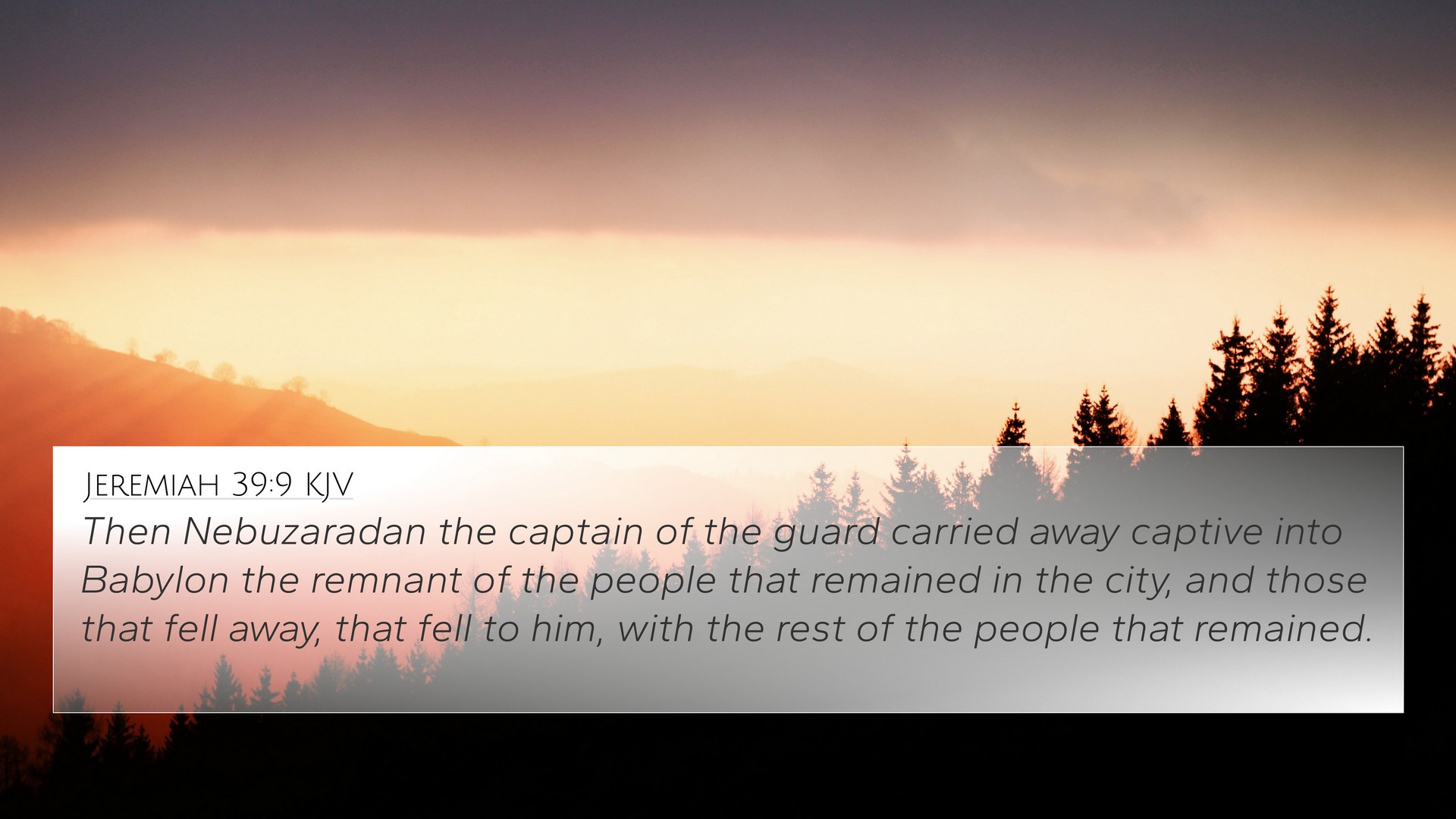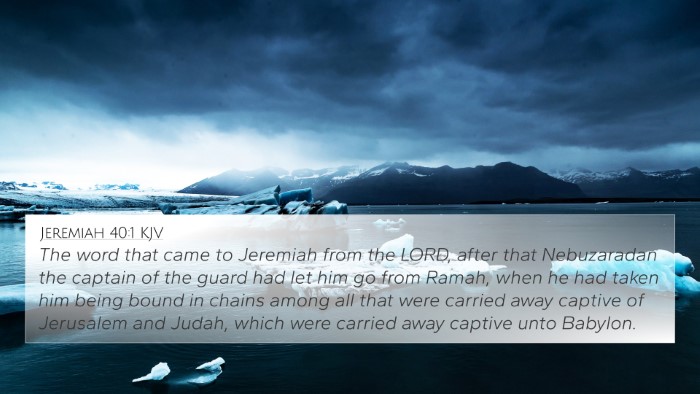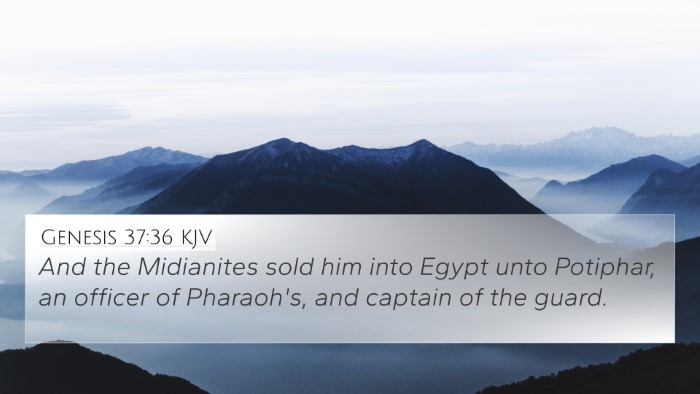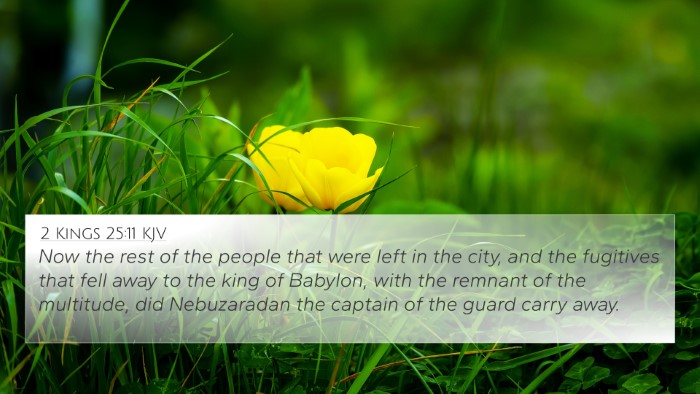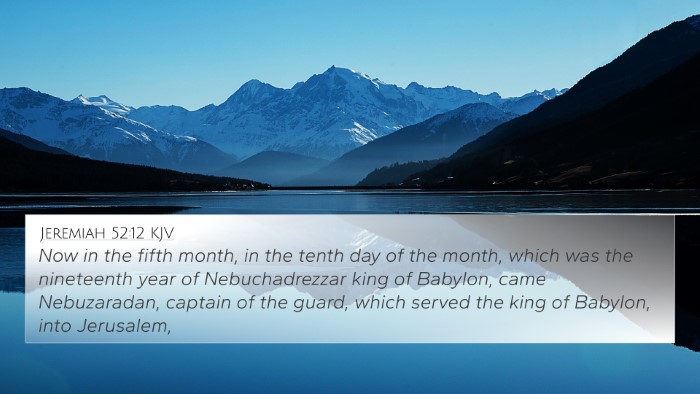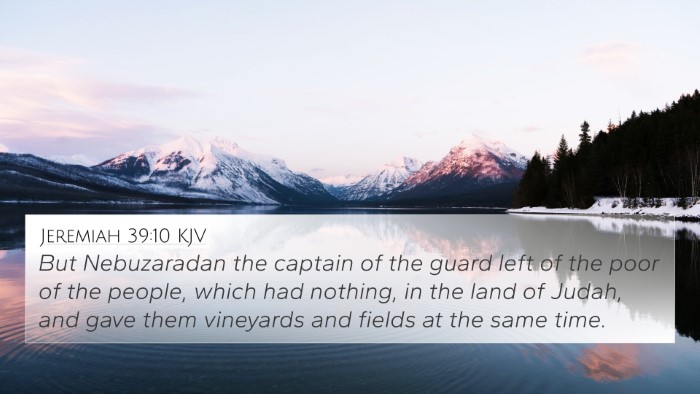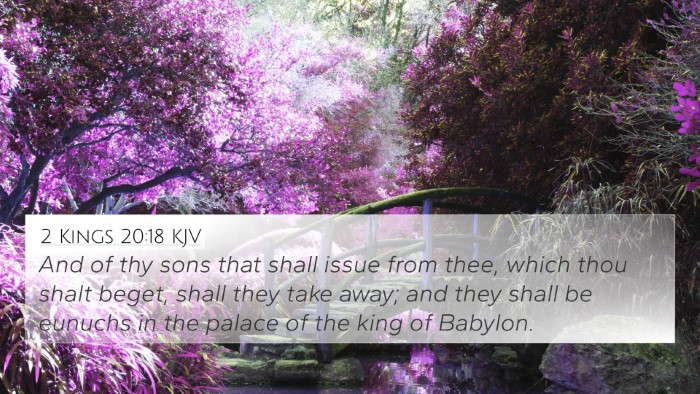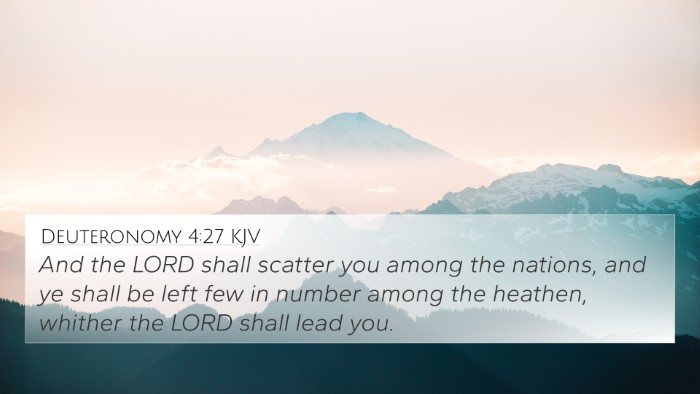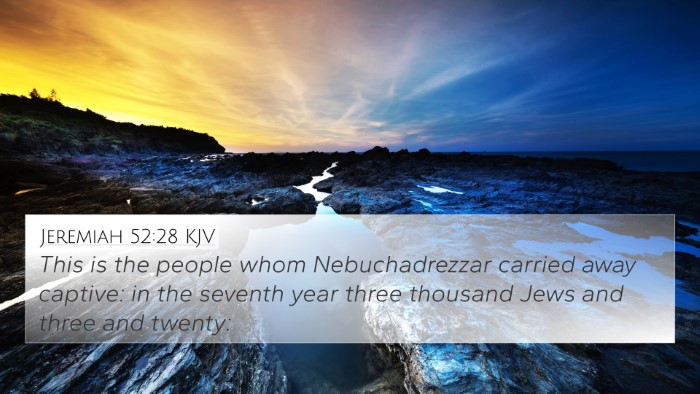Understanding Jeremiah 39:9
Jeremiah 39:9: "Then Nebuzaradan the captain of the guard carried away captive into Babylon the remnant of the people that remained in the city, and those that fell away, that fell to the king of Babylon, and the rest of the multitude." This verse depicts a significant moment during the Babylonian invasion, emphasizing the consequences for the people of Jerusalem and the fate of those taken captive.
Summary of Biblical Meaning
This verse illustrates the fulfillment of God's prophecy regarding the fate of Jerusalem and its inhabitants. The captain of the guard, Nebuzaradan, represents the execution of judgment against the city for its persistent sin. The remnant carried into Babylon signifies both loss and a glimmer of hope for future restoration.
Insights from Public Domain Commentaries
Matthew Henry's Commentary
Matthew Henry emphasizes the gravity of the situation as the people experience the aftermath of their sins. He points out that the remaining citizens serve as a reminder of God’s justice and mercy intertwined. While they face the immediate consequence of captivity, the eventual return to their homeland signifies God’s ongoing plan for His people.
Albert Barnes' Notes on the Bible
Albert Barnes highlights the historical context of the event, explaining Nebuzaradan’s role as a chief officer in Babylon who fulfills the decree of the conquest. He provides a detailed examination of why those remaining in Jerusalem were taken captive, illustrating the themes of divine judgment and hope remaining for future restoration, as well as God's overarching control in the affairs of nations.
Adam Clarke's Commentary
Adam Clarke delves further into the considerations regarding the captives' conditions. He acknowledges how this act not only serves as punishment but also as a means for spiritual renewal later. Clarke addresses the importance of understanding such verses within the broader narrative of Israel's exile and the eventual return under Cyrus the Great, pointing towards the hope of redemption.
Cross-References from Jeremiah 39:9
This verse connects with several other biblical passages that enhance its meaning and context:
- 2 Kings 25:11 - Relates the fall of Jerusalem and the carrying away of captives.
- Jeremiah 52:15 - Provides details on the remnants taken to Babylon.
- Ezekiel 12:14 - Discusses the scattering of the people during captivity.
- Isaiah 39:7 - Foretells the Babylonian captivity of the Israelites.
- 2 Chronicles 36:20-21 - Indicates the importance of the exile as fulfillment of prophecy.
- Zechariah 1:12 - Relates to God's concern for Jerusalem and His people after exile.
- Psalms 137:1 - Expresses the lament of the captives by the rivers of Babylon.
- Daniel 1:1-2 - Discusses the capture of Jerusalem and the carrying away of its people.
- Matthew 1:12 - Chronicles God's faithfulness throughout the generations post-captivity.
- Romans 11:1 - Reflects on God's remnant and His purpose for Israel even after judgment.
Thematic Bible Verse Connections
Jeremiah 39:9 elaborates on themes like judgment, mercy, and redemption. Understanding this verse hinges on recognizing how various themes intermingle across the scripture:
- Judgment and Consequences: Repeatedly emphasized in the prophetic literature, God’s judgment on nations and individuals is a key theme.
- Hope and Restoration: Throughout scriptures, there is a recurring promise of restoration for God’s children, especially after judgment.
- Faithfulness amidst Tribulation: The disappearances and gatherings of God’s people signify an enduring covenant despite human unfaithfulness.
Comparative Bible Verse Analysis
For a deeper understanding, it’s beneficial to engage in comparative Bible verse analysis. Here are some methodologies:
- Identify common themes across selected verses discussing exile, judgment, or restoration.
- Cross-reference with prophetic books to see the consistency of God’s message throughout scripture.
- Examine parallels in the New Testament regarding the fulfillment of Old Testament prophecies.
Conclusion
The implications of Jeremiah 39:9 go beyond the immediate event of Babylonian conquest. They invite readers to explore deeper truths about God's nature, His plans for humanity, and the hope that remains even in the face of despair. Engaging with cross-references, both historically and thematically, allows individuals to appreciate the interconnectedness of scripture and enrich their understanding of God’s Word.
Using Cross-References in Bible Study
Implementing tools for Bible cross-referencing enhances study quality. By utilizing a Bible concordance or a cross-reference guide, one can:
- Identify connections between Bible verses that reinforce particular teachings or themes.
- Develop a personalized Bible reference system for deeper theological study.
- Engage in cross-referencing Bible study methods for comprehensive insights.
